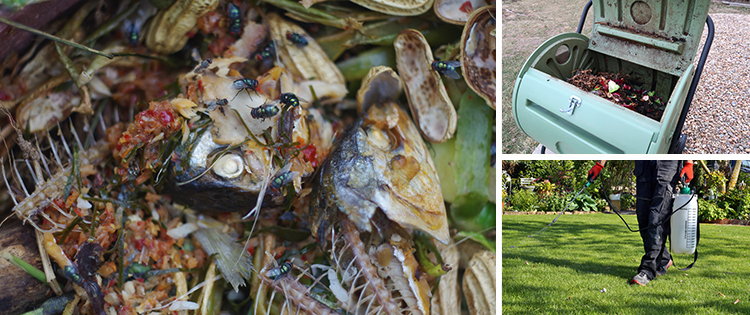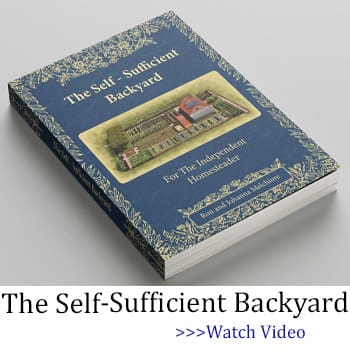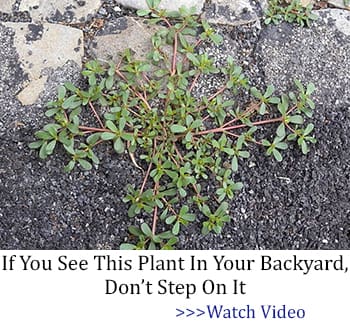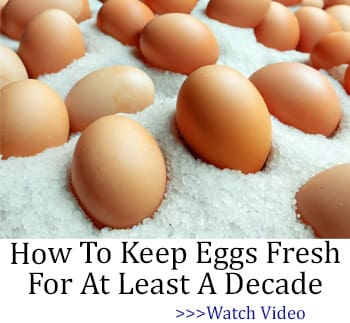Technically speaking – any living organism is compostable. But logically speaking – not every living organism should be composted.
That also goes for materials that are not biodegradable or too large to break down naturally. Understanding what should and should not go into your compost pile can save it from an unbearable stink, contamination, and rummaging varmints.
If you want to start making A-grade compost, stop using these:
1. Dairy Products
Avoid adding anything that contains milk to your compost. That includes things like ice cream, cheese, and yogurt.
These items tend to be high in fat content and moisture, which produces an odor that attracts critters.
2. Baked Goods
There’s no doubt that components in baked goodies can add nutritional value to your compost pile. The problem is that the smell produced during decomposition may attract pests.
And the sight of leftover toast or cookies on the pile is too good of a meal for a hungry critter to turn down. A crust here and there won’t hurt your compost, but a load of bread, scones, and biscuits can certainly attract uninvited guests.
If you feel you can’t send your leftover baked goodies to the dumpster, then bury them below all your other compost components.
Related: Boost Your Soil Quality With This Compost
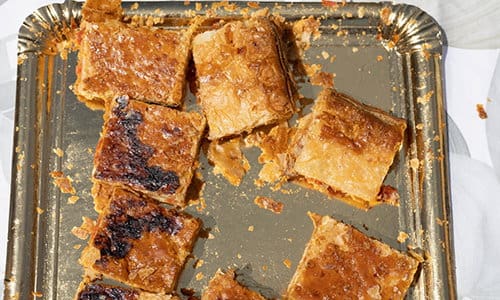
3. Cooked Grains
Bacteria loves carbohydrates – and what better organic compound with carbs than cooked grains. As they decompose, bacteria will build up around them, which contaminates your compost.
If you want to make better use of your leftover grains, give them to your poultry.
4. Animal Products
Animal products are an absolute no-no, when it comes to composting. Back in the day, Native Americans used to add fish scraps to their crops to accelerate their growth. It did work and still does!
Like any living organism, they decompose. But the smell of decomposing fish, meat, or eggs attracts cats, rats, raccoons, and other critters.
The smell will also cause your neighbors to gossip about you, look at you oddly, or report you! Whether raw or cooked, rotting animal products can be pretty offensive.
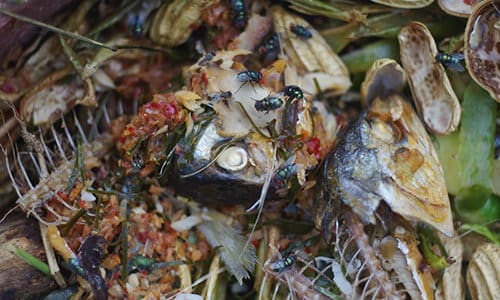
5. Oil
Don’t add grease, butter, fat, or cooking oil into your compost heap. Doing so will interfere with the composting process and attract rodents and pests to feast on your compost.
Disposing large quantities of oil into your heap will create a water-resistant barrier around it that reduces airflow and prevents water absorption. Oxygen is essential for decomposition to occur, so swamping your compost in oil will only serve to decelerate or even stop the microbial activity.
Like other items on this list, small quantities of leftover oil from last night’s sautéing vegetables won’t hurt, but make sure you swab it up with a newspaper or paper towel before tossing it in.
6. Treated Grass Clippings
Don’t add treated grass clippings to your compost, as the chemicals will harm the microbes, which interferes with the composting process. Even worse, toxins can enter your food stream when you apply your finished compost to edible plants.
If you recently treated your lawn with pesticides or herbicides, take a few weeks to a month as heat and water weaken and dilute the concentration before cutting and adding it to your compost.
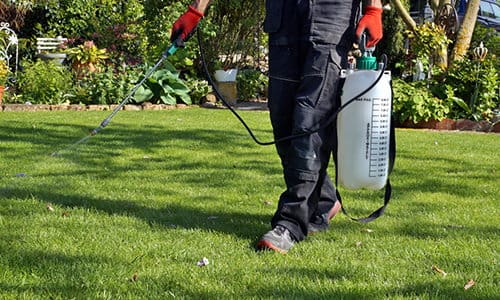
7. Diseased and Invasive Plants
Black spot, rust, powdery mildew, damping off, mosaic virus, verticillium wilt, and other plant pathogens can survive decomposition and infect your plants the following season.
Like weeds, diseased plants need high temperatures to eliminate fungi, bacteria, parasites, and viruses in them.
So as you spread the compost around your garden, you’ll likely perpetuate disease or inadvertently plant weeds that will compete with your veggies for nutrients. A few fresh English ivy leaves won’t cause any harm, but diseased squash plants or Virginia creeper clippings can rapidly escalate into a big problem.
Related: These Invasive Herbs Will Devastate Your Backyard
8. Dog and Cat Poop
Herbivore manure from cows, rabbits, goats, and horses can increase the nutritional value of your compost as the droppings are organic matter.
Carnivore droppings from cats and dogs, for example, are a totally different story. Avoid these at all costs as they often contain parasites and microorganisms that can infect your crops.
If you’re adamant about disposing of this renewable resource without sending it to the landfill, get a separate bin for pet compost. Once it’s ready, you should only use it on non-edible plants, trees, and shrubs.
9. Coffee Filters and Tea Bags
Tea leaves and coffee grounds are safe for composting as they contain potassium, phosphorous, and nitrogen, which are all crucial for plant growth. While these may be safe, tea bags and coffee filters are a huge no-no for your heap.
The filters or bags often contain synthetic fibers that don’t decompose as fast as other ingredients. Make sure you remove the grounds and leaves before tossing them into the compost bin.
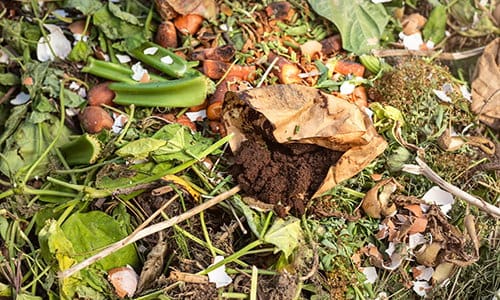
10. Citrus Fruit Peels
Apart from the lengthy decomposition process, the acidity in the peels can destabilize the pH of your compost, slowing the overall process. If you are vermicomposting, adding citrus fruit peels to your bin will kill the worms.
Personally, I put the peels to good use by soaking them and making non-toxic DIY house cleaning products instead.
Related: DIY Cheap Bio Enzyme Solution For Home Cleaning
11. Black Walnut Tree Debris
Untreated yard and garden waste make a great addition to your compost heap, with a few exceptions. Black walnut twigs, roots, and leaves contain a substance called juglone which stagnates the growth of a variety of plants and may even go on to kill them.
Some plants are more sensitive to juglone than others, including ornamentals like hydrangea, viburnum, and azalea, and edibles like peppers, potatoes, and tomatoes.
Research shows that, with time, juglone decomposes enough to lose its toxicity, but it’s best to leave black walnut debris out of your bin rather than deal with potential consequences later on.
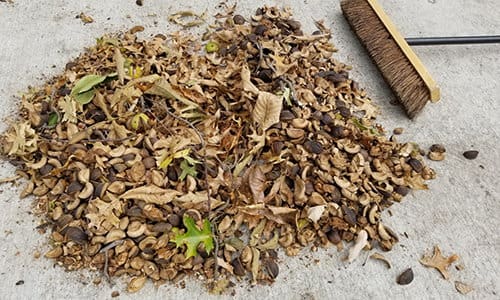
12. Charcoal Ash
Coal and charcoal ash contain Sulphur, which will increase the acidity of your compost, making it bad for your plants. Secondly, charcoal briquettes have harmful chemicals that can destroy your garden plants.
Note that you can add ashes from your outdoor fire pit or wood-burning fireplace (in small amounts) to your compost heap.
Other ingredients you should not add to your bin include: treated wood/sawdust, personal hygiene products, coated cardboard, large branches, wrapping paper, sticky labels, synthetic fabric, chewing gum, latex products, paraffin wax, acidic fruits, leather goods, cellophane, bioplastic, glass.
Now that you know what not to compost, I’m sure you’ll start adding safe ingredients to your compost. That will result in a healthy and nutrient-dense compost that enriches your garden, leading to a more fruitful harvest.
You may also like:
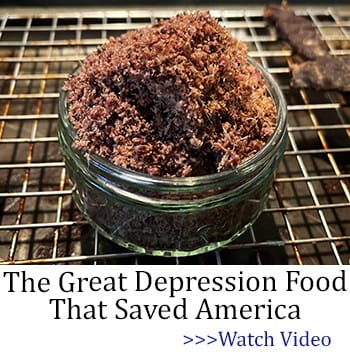 10 Common Composting Mistakes. Are You Making One Of Them?
10 Common Composting Mistakes. Are You Making One Of Them?
If You See This Plant in Your Backyard, Burn It Immediately! (Video)
The Ultimate Guide To Composting
